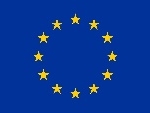BRIEF DESCRIPTION

A Citizens’ Assembly is a model or mechanism of deliberative democracy that brings together members of the public to deliberate on major policy questions and develop collective recommendations. Citizens’ Assemblies are designed to improve decision-making processes in democratic states and are especially useful in dealing with highly polarised, contentious or long-term issues, including climate change. They are usually commissioned by public authorities (at any level), working with other partners such as non-profits or research institutions.


EXAMPLE:
Citizens’ Convention for Climate: Gathered 150 French citizens in 2019-2020 to deliberate on pathways to achieve an emissions reduction of at least 40% by 2030, in a spirit of social justice. Resulted in 149 policy recommendations to the National Government, see website for details.
WANT TO KNOW MORE ABOUT THIS METHOD?
- Infosheets-2-SSH-CENTRE-Citizen-Science.pdf (sshcentre.eu) – An infographic explaining how Citizen Science allows contributions to the scientific research
- https://www.ecsa.ngo/ecsa-guidelines-and-policies/documents – The European Citizen Science Association has produced 10 principles of citizen science
- https://scistarter.org/citizen-science – database collecting Citizen Science initiatives from around the world
- Citizen Science: A Developing Tool for Expanding Science Knowledge and Scientific Literacy Bonney, R., Cooper, C. B., Dickinson, J., Kelling, S., Phillips, T., Rosenberg, K. V., & Shirk, J. (2009). Citizen science: a developing tool for expanding science knowledge and scientific literacy. BioScience, 59(11), 977-984. DOI:10.1525/bio.2009.59.11.9
- A review of citizen science and community-based environmental monitoring: Issues and opportunities Conrad, C. C., & Hilchey, K. G. (2011). A review of citizen science and community-based environmental monitoring: issues and opportunities. Environmental monitoring and assessment, 176(1), 273-291 DOI:10.1007/s10661-010-1582-5



 This project has received funding from the European Union’s Horizon Europe research and innovation programme under grant agreement No 101069529 and from UK Research and Innovation (UKRI) under the UK government’s Horizon Europe funding guarantee [grant No 10038991].
This project has received funding from the European Union’s Horizon Europe research and innovation programme under grant agreement No 101069529 and from UK Research and Innovation (UKRI) under the UK government’s Horizon Europe funding guarantee [grant No 10038991].